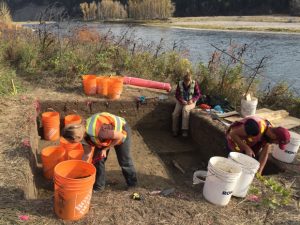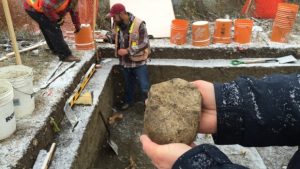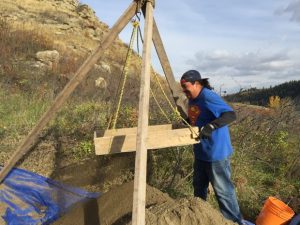The flood in 2013 that occurred in southern Alberta, Canada, caused the local government to conduct a program to preserve artefacts in affected areas. As a result, archaeologists studied sites unearthing items such as tools and bison bones at the banks of the Bow River, East of Calgary.

The government initiative lead to discovery of over 100 new archaeological sites. They might provide clues about the time when ancient cultures started making tools out of materials. Archaeological digs are conducted on two sites at McKinnon Flats. The work is currently being conducted and being finished in a hurry due to forecasts of heavy snow and ground freezes.

Archaeologists have discovered an area where bison were killed and butchered and a second one where the meat was prepared. Evidence for boiling pits, which were used by ancient aboriginal groups to extract marrow out of bison bones was found. Boiling pits were created by digging a hole in the ground, covering it with skin to make it watertight and filling with water. Afterwards, heated rocks were put inside to make the water boil and prepare the meat.

(after CBC News)